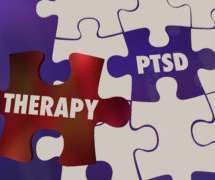How do we know when posttraumatic stress disorder is getting better?
Society of Clinical Psychology
JULY 13, 2020
Posttraumatic stress disorder (PTSD) causes a great deal of mental and physical distress, and can significantly reduce a person’s quality of life. Treatment response. A reduction in an individual’s symptom between the start of treatment, to completion of treatment, by 30-50%. 2016; Larsen, Fleming, & Resick, 2019).














Let's personalize your content